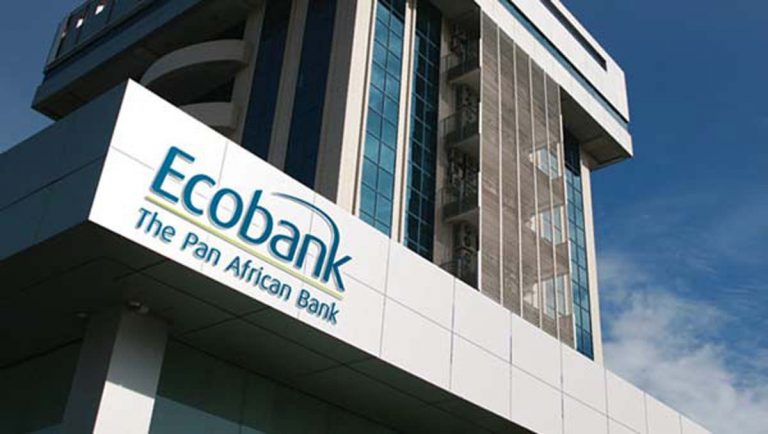The board of Ecobank Transnational Incorporated (Ecobank Group), on Monday reported a 24% in net profit for the half-year ended June 30, 2022, faster than the 15% increase in gross earnings for the period.
Gross earnings rose to N503.633bn, up from N439.49bn; of which revenue stood at N379.348bn, compared to the previous N334.881bn. Interest income rose from N282.745bn in the corresponding half-year of 2021, to N317.225bn, lifted by income from customer loans and advances of N168.715bn, which rose from N145.082bn; just as that from investment securities fetched N96.392bn from N88.022bn. Interest expense stood at N111.655bn from N97.966bn, driven by the N67.346bn interest on customer deposits, up from N57.709bn; leaving a net interest income of N205.569bn, up from N184.778bn.
Fee and commission income rose by 21% from N92.84bn to N112.208bn, the lion’s share of which was the N46.98bn earned from cash management and related fees, up from N40.898bn. Fee and commission expenses rose by a faster 71% from N9.398bn to N16.026bn, the bulk of which was the N15.484bn paid as “other fees,” from N9.047bn; net trading income increased from N53.895bn to N68.367bn, boosted by the N63.14bn foreign exchange income, which rose from N42.177bn; net investment income was flat at N3.396bn from N3.402bn’ while other operating income fell from N9.362bn to N5.832bn, after other operating income plunged from N7.825bn to N4.797bn; bringing total non-interest revenue to N173.778bn from N150.102bn; resulting in an operating income of N379.348bn, up from N334.881bn.
Staff expenses for the period rose to N92.441bn from N85.524bn; depreciation and amortization climbed up to N21.159bn from N19.838bn; and other operating expenses from N91.255bn to N98.713bn; bringing operating expenses for the period to N212.315bn, up from N138.264bn. Operating profit before impairment charges and taxation stood at N167.033bn, up from N138.264bn; while impairment charges rose 10% up to N48.018bn from N43.567bn. A breakdown of this figure showed that impairment losses on loans and advances dropped to N56.969bn from N57.508bn; recoveries dropped from N22.359bn to N18.751bn, just as impairment charge on other financial assets rose to N9.8bn from N8.417bn. This resulted in operating profit after impairment charges before taxation of N119.014bn, up 26% from N94.697bn. The group reported a net monetary loss arising from hyperinflationary economies of N10.058bn, from N9.388bn.
Profit before tax stood at N108.955bn, 28% better than the N85.323bn reported in the corresponding half-year of 2021; while tax expense of N31.643bn, 35% up from N23.402bn in prior half-year, resulted in a profit after tax of N77.312bn from N62.682bn. This translated to earnings per share of N2.20, up from N1.74 each.
There was however a slight shrink in balance sheet size, as total assets dropped from N11.689tr to N11.413tr, driven by the drop in customer loans and advances from N4.062tr at the end of December 31, 2021, to N3.939tr at the end of June 30, 2022; just as the worth of investment securities fell marginally to N2.742tr from N2.782tr. Total liabilities also declined from N10.771tr to N10.59tr; boosted by customer deposits worth N8.318tr, slightly lower than the N8.36tr at the end of December 31, 2021.
Commenting on the performance, Ade Ayeyemi, Ecobank Group’s Chief Executive, said the half-year result reflects not only the benefits of its diversification efforts but also its “resilience and capabilities to continue serving our clients and customers in a challenging environment and still generate adequate returns responsibly for our shareholders.
“As a result, we delivered a return on tangible equity of 19.5%, a record, and increased earnings per share for shareholders by 24% year-on-year. In addition, profit before tax increased by 24% to $261 million and by 53% if you adjust the increase for the significant depreciation of some of our critical African currencies to the US dollar,” he said.
Ayeyemi ascribed ETI’s good performance to its “investments, including in technology, and Ecobankers’ continued dedication to meet customers’ financial needs, despite a challenging operating environment of high inflation, weakening African currencies, worsening government fiscal balances and lowering economic growth. In our Consumer Banking business, pre-tax profits increased 43% on higher deposit margins, loans, and debit card spending.
Giving a breakdown of the performance across the business segments, he said Corporate and Investment Banking profits rose by 33%, “as we gained share in the letters of credit market, payment volumes increased by 43% on Omniplus, and FX volumes grew by 25% as client activity rebounded from the pandemic. In addition, an increase in SME activity and growth in the payment business lifted profits in Commercial Banking by 15%.
“Our investments in technology and digital capabilities have contributed to a reduction in our cost-to-serve. Along with revenue growth, the outcome is our record cost-to-income ratio of 56%. In addition, we increased impairment charges to reflect heightened credit risks. More importantly, we have proactively built central impairment reserves of $206 million, which we can deploy in a stressed credit environment. At the same time, our balance sheet remains liquid and adequately capitalised, providing us the capacity to serve our customers better.
“Our service to our customers and communities, anchored on our vision to advance Africa’s economic development and financial integration, is widely recognised. Recently, Euromoney adjudged Ecobank for 2022 – Africa’s Best Bank, Africa’s Best Digital Bank and Africa’s Best Bank for SMEs. These accolades are a testament to our passion for serving clients and customers and our continued investments in technology, processes, and people. I am extremely proud of my colleague Ecobankers and thank them for their diligence. As always, we are passionately working towards realising our vision and remaining the bank that Africa and friends of Africa trust,” he stressed further.








